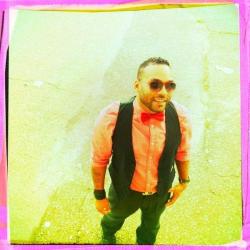Back to School – and Bullying?
As kids head back to school this month, we wanted to remind everyone about the Mazzoni Center‘s Ally Safe Schools Program that works with Philly schools and after-school programs to help create a safe environment for LGBT youth. Since 1998, the program’s been coordinating the Philadelphia network of Gay-Straight Alliances (GSAs), offering resources, technical assistance and support to 46 schools in the region.
Louie Ortiz recently joined Mazzoni as the new head of the Ally Safe School program. He replaces Allison Buehler, who recently began a graduate school program in North Carolina. A native of North Philadelphia, Ortiz previously worked at the Youth Health Empowerment Project (Y-HEP).
Also joining Ortiz is Khaliah Pitts, a new associate with Ally Safe Schools, who’ll coordinate local GSA meetings and activities.
“What’s going to be exciting is that we will have more staff to support this movement,” says Ortiz.
In addition to the regular meetings that each school’s GSA program holds, he and the team will also host a Citywide GSA meeting once a month at the Broad Street Ministry, a forum for students from different schools and neighborhoods to interact with one another, share ideas and compare experiences. This year’s student leadership board is also being assembled with 10 local youth leaders from schools across the city.
“It’s remarkable,” says Ortiz, “how one after-school program can impact an entire school environmentally.”
Among the goals for this year, he says, “is to focus on schools that don’t necessarily have a lot of resources in place.” He’s also considering pairing schools in different neighborhoods, like Masterman High School and University City High School, so that students might learn from one another’s experiences.
He would also like to engage students and teachers in a discussion about cultural factors that can impact a student’s experience at school, “things,” he says, “like bullying, sexism, and poverty. In times like this I think it’s even more important to help students feel empowered. The message is, ‘You fought for this group – and this year you may have to fight for your school.’”
The lasting impact of GSA programs has been noted in several studies that show students engaged in extracurricular and leadership activities at their schools are far more likely to not only graduate, but also further their education.
“This kind of program changes lives,” says Ortiz, “and ultimately it changes the world.”



